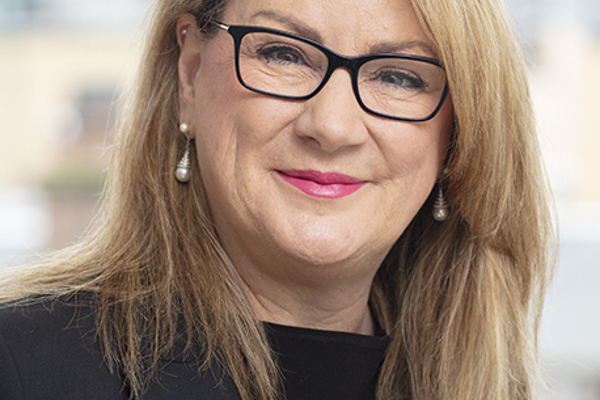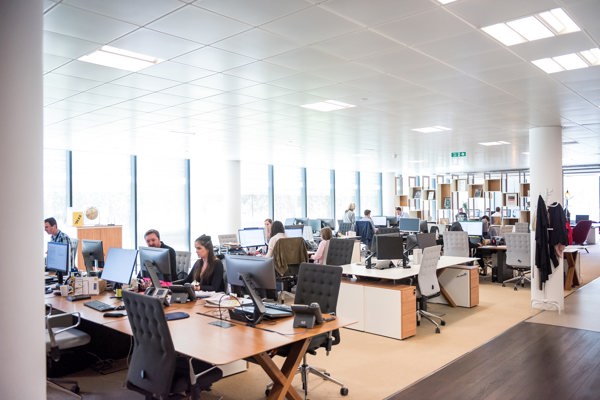Ciaran Harkness, Solicitor, Corporate Team
Can you please tell us a little about your mentoring experience?
I've been mentoring for two years now, starting with MCR Pathways in October 2021 in the middle of Covid-19. Going into a packed school when everything else around us was yet to fully open was a surreal experience!
Young people in the MCR Pathways programme start with group activities for their first two years of secondary school, before being matched with a mentor from their third year onwards - so while my mentee had some experience with the programme beforehand, the mentoring experience was new to us both.
The programme aims to match mentors and mentees on the basis of shared life experiences and interests, so we were able to find common ground to speak about fairly quickly. Chats about things like the weekend's football quickly helped break the ice and led into broader conversations.
The aim of MCR Pathways is to help mentees get to a positive destination after school (whether further education or work), and we quickly found that my mentee was keen to work in childcare. While at university I had worked at an after school club, and had served as one of the keyworkers for the children there. That experience was really rewarding and was part of the reason that volunteering with MCR Pathways appealed to me in the first place. I've also been able to use that experience to help my mentee think about the path to his chosen career, and help him towards developing skills which will help him in that role.
My mentee is now in fifth year and already looking towards his college course of choice once he leaves school after sixth year. The time has absolutely flown by, and it's been great to see my mentee grow in that time.
What is the most rewarding part of being a mentor?
I've met a lot of other mentors at the regular "coffee conversations" held by our local MCR Pathways team, and I'll often hear at least one person refer to their mentoring sessions as "the highlight of their week". It seems to be a fairly universal experience across mentors and it's one I can get behind. The experience of the mentoring itself - of taking just a little bit of time out of your day to help someone else grow and work towards their goals in life - is incredibly rewarding.
You also get to meet a number of fantastic people through mentoring. That includes other mentors as well as your local MCR Pathways team (who are always fantastic and incredibly helpful), but also your mentee themselves. You end up becoming good friends with them, and part of what makes the experience so rewarding is spending time speaking with someone you really get on with.
What is one piece of advice that you would give to someone thinking about taking on mentoring?
My main piece of advice would just be to give it a go! It can feel a bit daunting, especially at the start, and you might sometimes not feel sure how much of a difference you're making. If you stick at it and keep positive, though, mentoring can have some great results. Not just for the mentee, either!
Rosa Stewart, Marketing and Business Development Manager
Can you please tell us a little about your mentoring experience?
MCR Pathways are a school based mentoring programme supporting care-experienced and vulnerable young people to realise their full potential through education. I recently began my journey with them to become a mentor and support a young person in school.
So far, I've received a comprehensive training programme where I have met with key workers from MCR as well as other mentors working in my local area. Once I have completed the process of getting my PVG and Disclosure checks then I will be ready to be matched up with a young person in my area of East Dunbartonshire. MCR explained that they try and carefully match my own interests, likes and skills with a young person who has similar interests so that we will have some initial things in common. However, they also explained that it will take time to build a trusting relationship and the main thing is being consistent and turning up for your hour every week as you may be the only person the young person sees on a regular basis who is not paid to be in their life and spend time with them.
What is the most rewarding part of being a mentor?
I believe mentoring can make a real life-changing difference, with 70.7% of care experienced pupils staying on to gain more qualifications compared to 39% of non-mentored pupils. For me, the rewards will definitely be around seeing the young person develop over time and to be able to provide a listening ear when needed. Personally, I hope to be able to give something back and do something positive as part of my late mother's legacy. She was a primary school teacher working in an area with a lot of social issues, and was heavily involved with local families running a nature room and a breakfast club for the children - so I know she would fully approve of a scheme like this.
What is one piece of advice that you would give to someone thinking about taking on mentoring?
For anyone else thinking about mentoring, and in particular with MCR, then I would definitely recommend getting involved. The training and support is excellent, and you will be making a huge difference to someone's life and future.
Aleksandra Werecka, Marketing Assistant
Can you please tell us a little about your mentoring experience?
I was involved in the 'Peer Mentoring' widening participation programme during my studies at the University of Edinburgh. The aim of the programme is to provide friendly guidance and support to a first-year student as they adapt to university life.
During the mentoring programme, you meet your mentee approximately fortnightly to discuss how they are getting on, and if they have any concerns whether it is academic, social or personal. As mentor you act as a trusted body of support within the university.
Each mentoring experience will be different as it will depend on the needs of your mentee. In my first year of mentoring, my first year mentee was also a law student. I met with them weekly to discuss the difficulties of adapting to university life during COVID and online learning, as well as some difficult personal circumstances the individual was going through. My role as mentor was to listen to my mentee's concerns and guide them to other important bodies within the university that can provide additional support. Outside of that, we mostly discussed some tips on writing essays, how to handle workload and socialise during those difficult times of online learning. In contrast, in my second year of mentoring my mentee had different needs and we met fortnightly, to discuss workload, study tips and things to get involved in to make most of the university experience.
Both those experiences were very enjoyable.
What is the most rewarding part of being a mentor?
Seeing first hand the impact that a simple conversation weekly or fortnightly can have on someone's life is the most rewarding part. I think we all underestimate the effect that a general conversation for 30 minutes to an hour can have, and it can go a very long way in supporting a young person with their struggles.
In my experience of mentoring first year university students, the rewarding part was discussing an area of concern or stress around studies or giving tips on study methods one week and seeing that advice utilised in later meetings where your mentee brings good news and feels an improvement in their confidence at tutorials or receives good results in their assessments. It's the impact a bit of reassurance can have on someone.
What is one piece of advice that you would give to someone thinking about taking on mentoring?
Just go for it! You might feel like you aren't the best person to discuss certain topics with, or you may feel that you do not know how to give someone support they need. However, you soon learn that it is the little things, like a general conversation that can have a real and positive impact on someone. The role of mentor is very rewarding and I think everyone should give it a try at some point in their lives.


